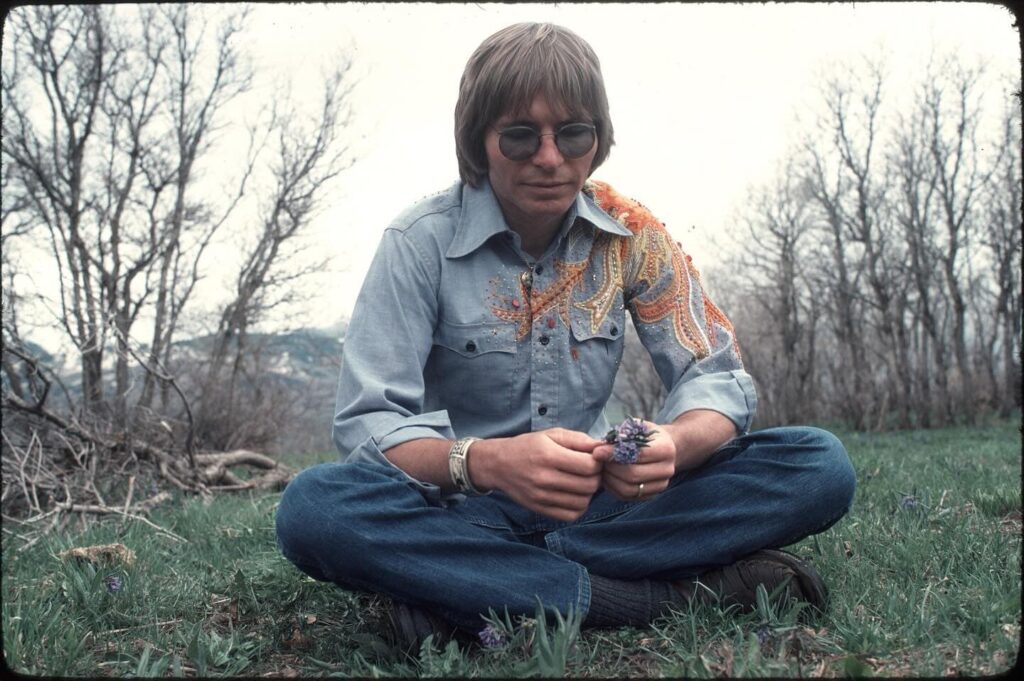
A Final, Heart-Wrenching Apology: The Enduring Melancholy of John Denver’s Last Chart-Topper
A timeless ballad of regret and self-pity following the departure of a cherished love.
There are certain songs, snippets of melody and verse, that serve as a kind of shorthand for an entire era, and for many, the early-to-mid 1970s belong almost entirely to John Denver. The man in the wire-rimmed glasses, the gentle minstrel of the mountains, dominated the airwaves with his wholesome, optimistic tunes. Yet, even the cheeriest troubadour knows the sting of sorrow, and in 1975, he delivered a tear-stained testament to a love lost: the aching ballad, “I’m Sorry.”
The song’s commercial success underscores its profound resonance with the public. Released in July 1975 as a single from his album Windsong, “I’m Sorry” soared to the pinnacle of multiple charts, marking a spectacular, and final, run for the country-folk star on the pop charts. It was a genuine crossover hit, securing the coveted Number 1 spot on the Billboard Hot 100 chart on September 27, 1975. This cemented its status as John Denver’s fourth and final chart-topper on the Hot 100, following an incredible run that included “Sunshine on My Shoulders,” “Annie’s Song,” and “Thank God I’m a Country Boy.” Furthermore, it repeated this success on the Easy Listening chart and gave him his third and final Number 1 on the Billboard Hot Country Singles chart. The single was a powerful two-sided affair, too; its B-side, the moving tribute to oceanographer Jacques Cousteau, “Calypso,” received substantial airplay, resulting in some charts, like Billboard, listing the entry as a double-sided hit, further extending its chart life.
But what gives “I’m Sorry” its lasting power isn’t just its chart performance—it’s the raw, almost uncomfortable sincerity of its lyric. Penned entirely by John Denver, the song is a straightforward, gut-wrenching apology for a forsaken love, a confessional from a man left alone in the cold city, trying to keep up a brave front to mutual friends (“I say you’re doing fine, I expect to hear from you almost anytime“) while inwardly “dying down deep inside.” The story behind the song is often linked to the growing strain in his relationship with his first wife, Annie Martell—the muse for his iconic, swooning hit, “Annie’s Song.” Though their marriage would endure a few more years before their tumultuous 1982 divorce, songs like “I’m Sorry” served as public, painful markers of the domestic cost of his meteoric career.
The song’s profound meaning lies in its subtle but crucial shift in focus within the chorus. Denver begins with a sweeping, almost abstract expression of sorrow: “I’m sorry for the way things are in China, I’m sorry things ain’t what they used to be.” This use of “China” often puzzled listeners, but its rhetorical function is clear: he’s so fundamentally broken that he’s sorry for the entire state of the world. Yet, the confession doesn’t stay universal. It collapses into the deeply personal in the very next line: “But more than anything else, I’m sorry for myself ’cause you’re not here with me.” The ultimate regret isn’t for the lies he told or the chains he put on his partner, but for his own resulting loneliness. It’s an act of contrition that, in its final moment, pivots to a devastating self-pity, capturing the messy, human truth of heartbreak. For those of us who came of age in that decade, sitting alone with the radio late at night, the song was a mirror, reflecting not just the sadness of a breakup, but the quiet, undeniable selfishness of profound grief. It remains a beautiful, bittersweet reminder that even the sunniest of singers can deliver a shadow that lingers.